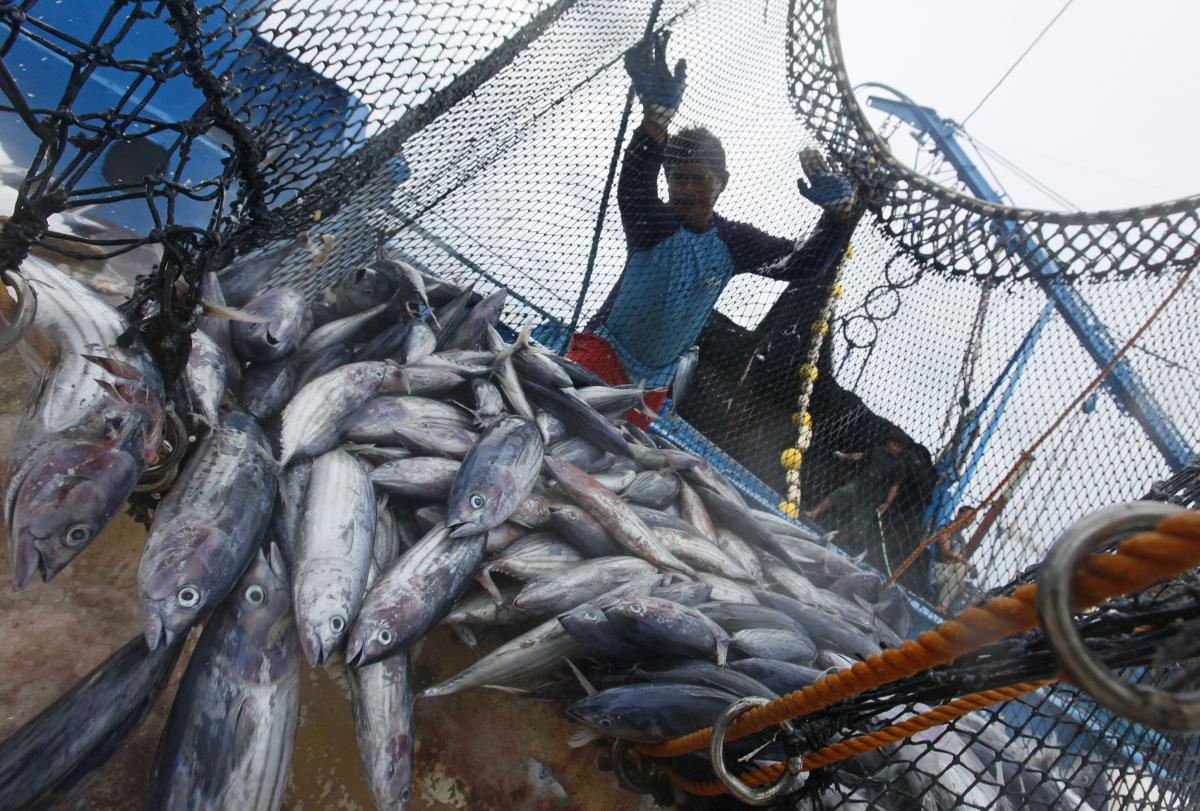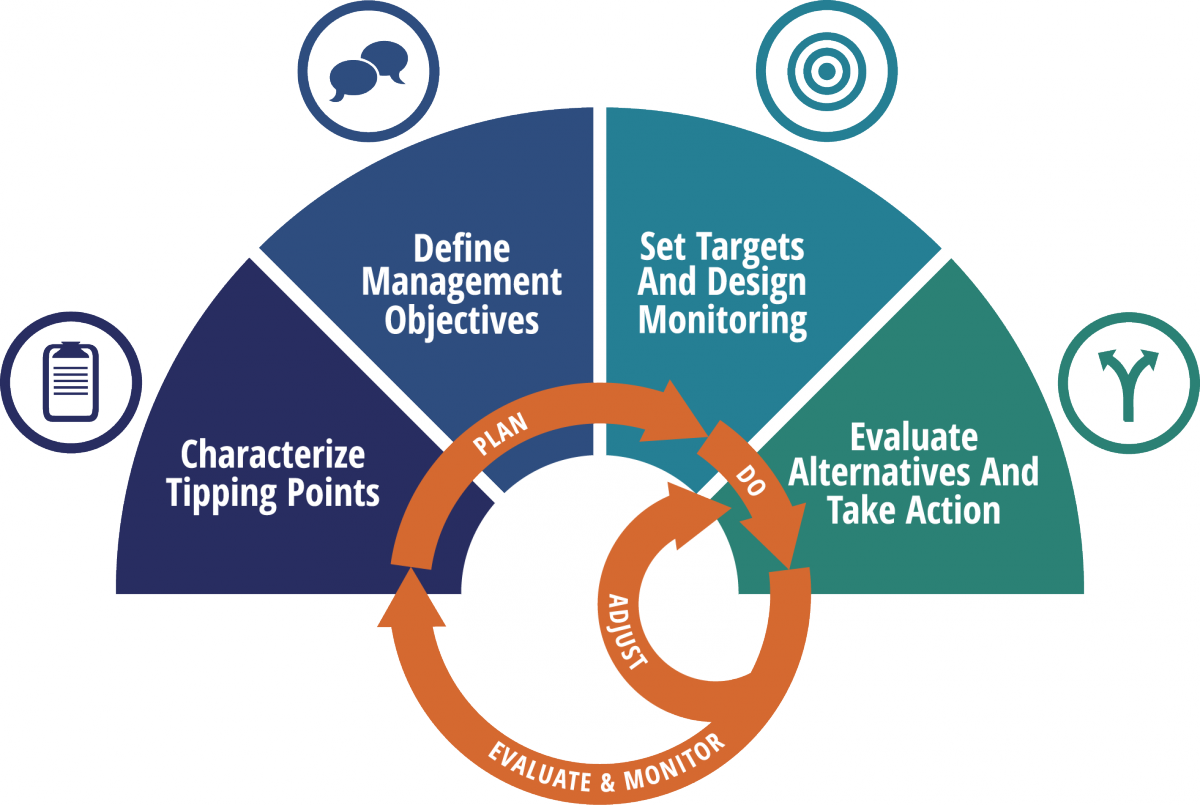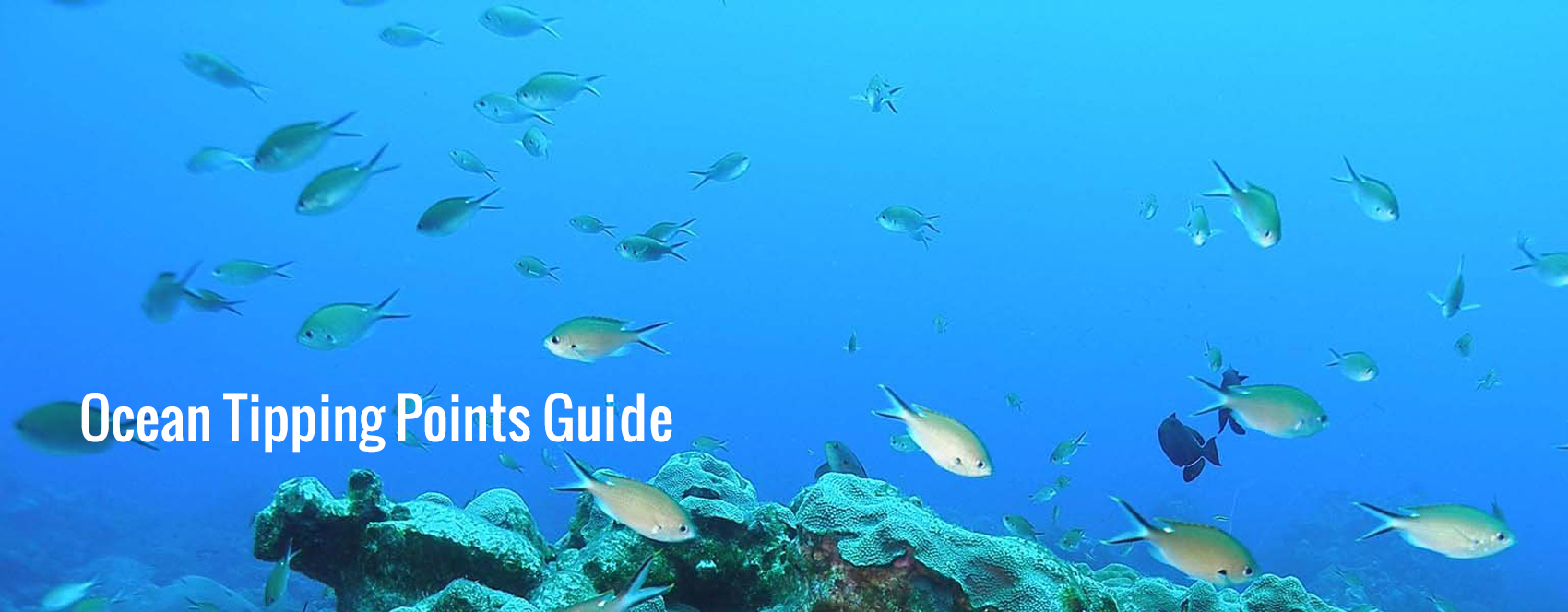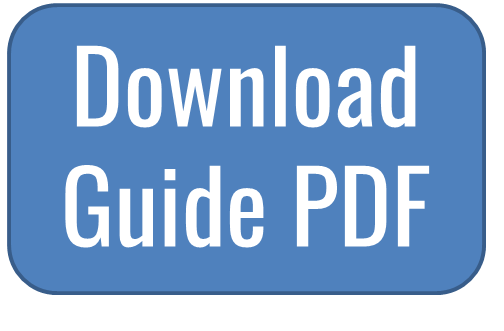Purpose of this Guide
The goal of this Guide is to improve your ability to detect and manage important tipping points in your ecosystem, helping you avoid unwanted surprises and prioritize effective management actions.
 Crossing an ecosystem tipping point creates dramatic change. From collapsed fisheries and coastal dead zones, to melting sea ice and dying coral reefs, the consequences are often devastating to both the environment and the people who depend on it.
Crossing an ecosystem tipping point creates dramatic change. From collapsed fisheries and coastal dead zones, to melting sea ice and dying coral reefs, the consequences are often devastating to both the environment and the people who depend on it.
Tipping points are difficult to anticipate or detect. The initial change may be gradual but then rapidly accelerate as a tipping point is approached. Understanding how to predict and prevent the crossing of tipping points, or recover from ones already crossed, is critical to effectively managing natural resources in a changing world.
"Management strategies that include monitoring ecosystem state and identifying measurable tipping points tend to be more effective in achieving management goals than strategies that do not consider potential tipping points." - Kelly et al. 2015
Researchers from the Ocean Tipping Points project have developed a set of valuable resources and analytical approaches to help practitioners and scientists better understand, predict, and manage these shifts. In this Guide, we provide four strategies for incorporating knowledge about ocean tipping points into your existing management decision-making. We have embedded this tipping points knowledge into a general adaptive management framework that is widely used in natural resource management.

This Guide is not intended to be prescriptive, but rather to provide important concepts and approaches from tipping points science that can help support your existing resource management framework—whether you are embarking on a new ecosystem management process or you are looking to adapt and improve current monitoring or management for your system. Below we offer details, examples, and tools to support each of the four strategies and to help you think about how to implement this approach in your own system. You may work through the entire process, or pick and choose those concepts that are most useful to you.

